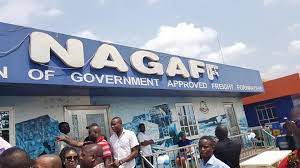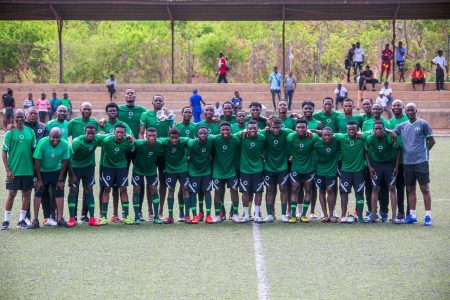Freight forwarders affiliated with the National Association of Government Approved Freight Forwarders (NAGAFF) have raised serious concerns regarding the operations of terminal operators at the Tincan Island Ports in Lagos. The forwarders accuse these operators of obstructing the removal of overtime containers, which are defined as cargoes that have remained in the terminal for more than 90 days. Mr. Tanko Ibrahim, the Coordinator of NAGAFF’s 100 percent Compliance Team, claims that about 15,000 such containers are currently trapped at the terminals. He alleges that the Port and Cargo Terminal and the Tincan Island Container Terminal, which are both located on Tincan Island, are actively hindering the Federal Government’s efforts to alleviate congestion caused by these overtime containers.
Ibrahim emphasizes that terminal operators act merely as custodians of the containers and are not their owners. He points out that regulations exist to limit the duration for which cargo can sit idle, suggesting that containers exceeding the 90-day threshold should be transferred back to government-bonded terminals. Importers, according to Ibrahim, should then be able to process these containers through the Customs system, which includes assessments and potential payment of outstanding fees. He expresses frustration with the operators, stating that they have denied both the NAGAFF committee and cargo owners access to their containers despite the legal framework allowing for such interaction.
The situation is further compounded by the financial interests of terminal operators, who are reportedly reluctant to move containers to the overtime depot in Ikorodu. Mr. Stanley Ezenga, Secretary of NAGAFF’s Western Zone, implies that the operators are motivated by the prospect of continuing to collect demurrage, rent, and storage fees, which would be lost if the containers are relocated. This financial incentive appears to fuel a sustained reluctance to facilitate the transfer of overtime containers, preventing the resolution of the congestion crisis and adversely affecting the supply chain.
Adding to the frustration, Mr. Abayomi Duyile, Chairman of the Ports and Terminal Chapter of the National Council of Managing Directors of Licensed Customs Agents, corroborates NAGAFF’s concerns, noting that the interference from various terminal operators has been a persistent issue over an extended period. He underlines the need for a concerted effort to improve operational cooperation to resolve the bottleneck effectively. The growing frustration among freight forwarders and customs agents indicates a systematic failure in the terminal operations at Tincan Island.
In light of these challenges, the NAGAFF has given terminal operators a two-week ultimatum, beginning on the 14th of October, to address the ongoing issues. Tanko Ibrahim warns that if there is no substantial improvement by the end of this period, they will resort to decisive action as a form of protest or further pressure to ensure compliance. This reflects the increasing tension between freight forwarders and terminal operators and underscores the urgency of finding a solution to alleviate congestion and facilitate smoother operations.
In response to the accusations, terminal operators have been largely non-communicative. Representatives from the Ports and Cargo Terminal and the Tincan Island Container Terminal have either declined to comment or requested formal inquiries to address the allegations. This lack of transparency and willingness to engage further frustrates freight forwarders and could exacerbate existing tensions within the port system. The overall scenario poses significant implications for the logistics and shipping industry in Nigeria, heightening concerns over operational inefficiencies and the potential economic impact on businesses reliant on timely shipments.













